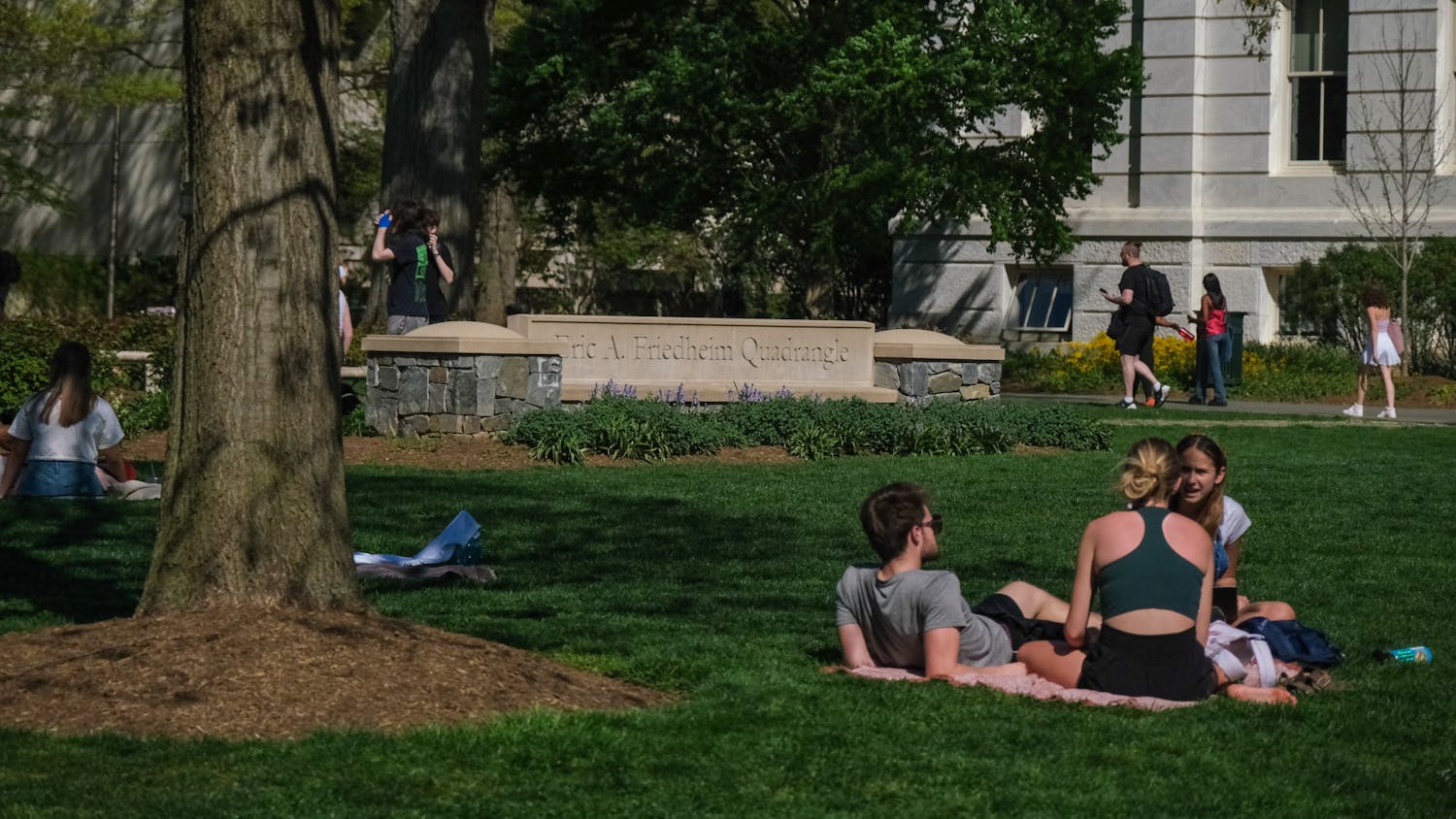In one hour, Julie Wojtulewicz folds 80 black ribbed tank tops, rings up 15 customers and listens to an average of three complaints in her part-time retail job.
About six months from now, Wojtulewicz’s place of employment will change drastically from a mall in Northern Virginia to a small rural South American classroom where she will teach English as a Peace Corps volunteer.
Wojtulewicz, a 2009 graduate of the School of International Service, will join the increasing number of Peace Corps volunteers entering the field today. There was an 18 percent increase in applications from fiscal year 2008 to 2009, according to a Peace Corps news release. This number represents the largest amount of applications since the agency began electronically recording applications in 1998.
Leah Moriarty, an employed graduate from the College of Arts and Sciences, is trading her business casual attire and downtown D.C. office for a position in Senegal as a Peace Corps volunteer. Moriarty will be working as a preventative health educator in a small village where she may not have electricity or the Internet.
“I just read a book about a woman who did preventative health care in Côte d’Ivoire with the Peace Corps and had to deliver a baby,” Moriarty said. “That could be me.”
Both Josh Field, a press representative for the Peace Corps, and Robert Pastor, professor at AU in SIS and former Peace Corps volunteer, point to President Barack Obama as a contributor to the increase in Peace Corps applications.
“Many young people were moved by the energy and eloquence of Barack Obama,” Pastor said. “Even more, there is a feeling of a new connection with the world derived from September 11 or catastrophes like Haiti. Young people want to get involved and prevent some of these problems.”
Pastor sits among hundreds of books piled up along the windowsills and bookshelves in his office at AU. Framed pictures of himself with influential leaders line the white walls — a tribute to his successful career as a leading policy maker. Pastor is far from Malaysia, where he spent two years as a Peace Corps volunteer starting in 1970, but he still thinks of the country and its people often. When he needs to make policy decisions, thinking of the farmers in Malaysia helps him picture what U.S. foreign policy should be like.
“I have been at the highest level of policy making but felt that I had a bigger impact as a volunteer,” said Pastor, who also served as a senior adviser to Jimmy Carter’s mission to restore a constitutional government in Haiti.
While in Malaysia, Pastor formulated a 10-year development plan for farmers in a small town. He insists that his experience in the Peace Corps fueled his later career.
“Within six years of leaving the Peace Corps I was flying on Air Force One to Latin America,” he said.
Field said he could not point to a specific reason why the number of applications increased.
“Based on my experience, when someone makes a commitment for 27 months, it’s not just based on one thing,” Field said.
He also pointed to the benefits that the Peace Corps provides as a motivator to applicants.
“People realize they live in a global economy and getting experience is important and offers tangible benefits for people who serve,” Field said.
Some of these benefits include school loan deferment, advantages in federal employment and transition assistance into careers after the volunteer experience, according to Field. The Peace Corps was also named one of the best places to launch a career by the magazine Business Week.
“I absolutely think the Peace Corps will give me a leg up,” Wojtulewicz said. “When applying for jobs, people who have been in the Peace Corps get preferential treatment.”
A common urge to travel abroad and to help those in need influenced Wojtulewicz’s and Moriarty’s decisions to apply to the Peace Corps as well.
“I wanted to go abroad and the Peace Corps is the best way to do that,” Wojtulewicz said. “Even if I help only two kids it will be worth it. I would love to see the children light up when I walk into the room.”
Leading an Alternative Spring break to Bolivia sparked Moriarty’s interest to participate in what she calls “issue related traveling”.
“I get really antsy if I’m in the U.S. for too long,” Moriarty said. “The Peace Corps is a great opportunity and adventure.”
Pastor remains encouraged by applicants such as Wojtulewicz and Moriarty, he said.
“The Peace Corps is one of the best vehicles for having a real effect,” Pastor said. “I am excited that students turn to it.”
For Wojtulewicz, her flight to South America could not come soon enough.
“I work two part-time jobs,” she said. “I can’t imagine living the rest of my life like this. I’m miserable with my life now, and I’m hoping the Peace Corps will fix that.”
You can reach this writer at news@theeagleonline.com.




